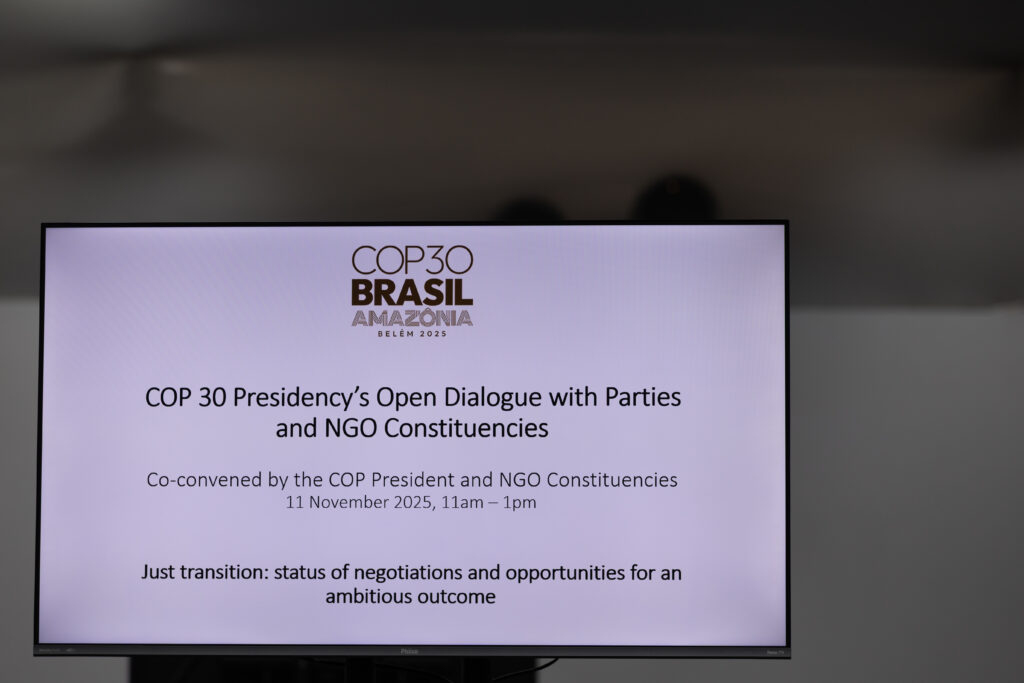
From 10th to 21st November 2025, delegates from around the world gather in Belém, the capital of Brazil’s Amazon region, all calling for equitable climate solutions on the 30th Conference of Parties (COP30).
For REP and its partners, COP30 is a wonderful platform to demonstrate that Indigenous Peoples are not merely stakeholders but solution holders in addressing the linked crises of energy poverty and climate change.
Showcasing Indigenous-Led Energy Solutions (November 18)
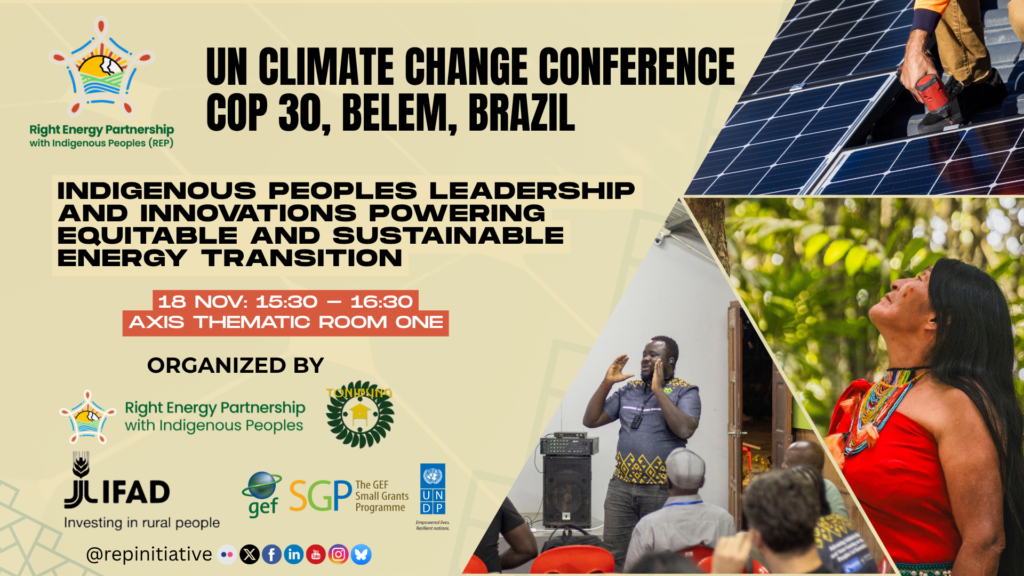
On November 18, REP, together with TONIBUNG, the International Fund for Agricultural Development (IFAD), and the United Nations Development Programme (UNDP) Small Grants Programme (SGP), will host a high-level Showcase of Highlighted Results and Solutions under the theme:
“Advancing Just Transition for Indigenous Peoples through Indigenous Peoples-led Renewable Energy Initiatives.”
The 60-minute session will spotlight Indigenous Communities that have pioneered renewable energy systems—proof that local leadership, when empowered, can drive scalable and sustainable transformation.
Among many, participants will hear from voices leading this movement, including from Robeliza Halip, our Executive Director, and from other prominent Indigenous Peoples leaders and human rights activists .
From solar-powered water pumps in Cambodia to community-owned micro-hydropower in Malaysia and Honduras, these stories exemplify how Indigenous knowledge and innovation can illuminate pathways out of energy poverty—while protecting ecosystems and strengthening self-determination.
From Exclusion to Leadership (November 20)
Building on the momentum, REP will also lead a second session titled “From Exclusion to Leadership: Indigenous-Led Renewable Energy for a Just and Sustainable Energy Transition” on November 20 at the Indigenous Peoples Pavilion in the Blue Zone (Pavilion D117).
This event underscores a critical truth that despite being disproportionately affected by the climate crisis, Indigenous Peoples are often sidelined in just transition dialogues. Yet across continents, communities are designing and implementing their own renewable energy systems—anchored in traditional knowledge and rights-based approaches.
Top-down development initiatives are threatening the continuity of Indigenous Peoples as well as resources within our territories,” Robeliza Halip.
The REP Director stressed that “States should ensure they respect and recognize the rights of indigenous peoples, embedding them in any intervention related to the energy transition.”
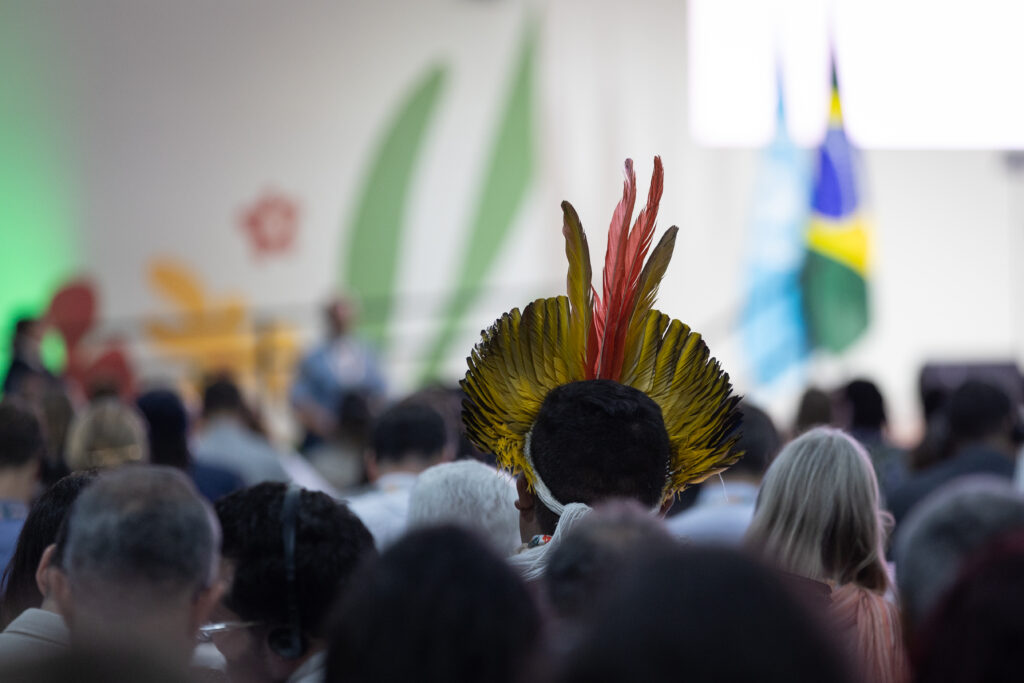
Scaling Solidarity for Climate Justice
Since its inception, REP has worked across Asia, Africa, and Latin America—reaching more than 5,400 Indigenous Peoples with initiatives that expand energy access while protecting biodiversity and advancing the right to self-determined development. COP 30 marks another milestone in this journey, offering a global platform to celebrate these achievements and call for greater solidarity and collaboration.
At this moment of time, Indigenous-led solutions are not alternative approaches, rather essential to our shared future.

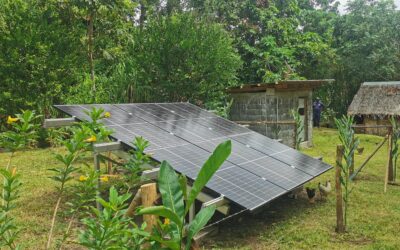
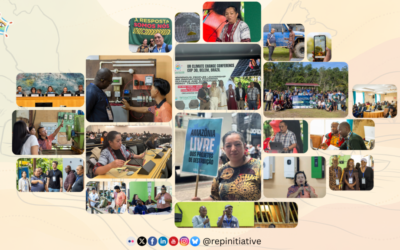
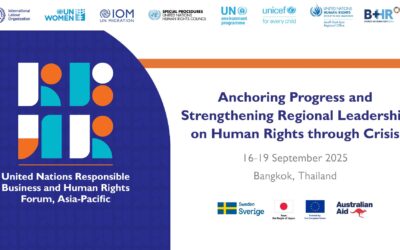
0 Comments